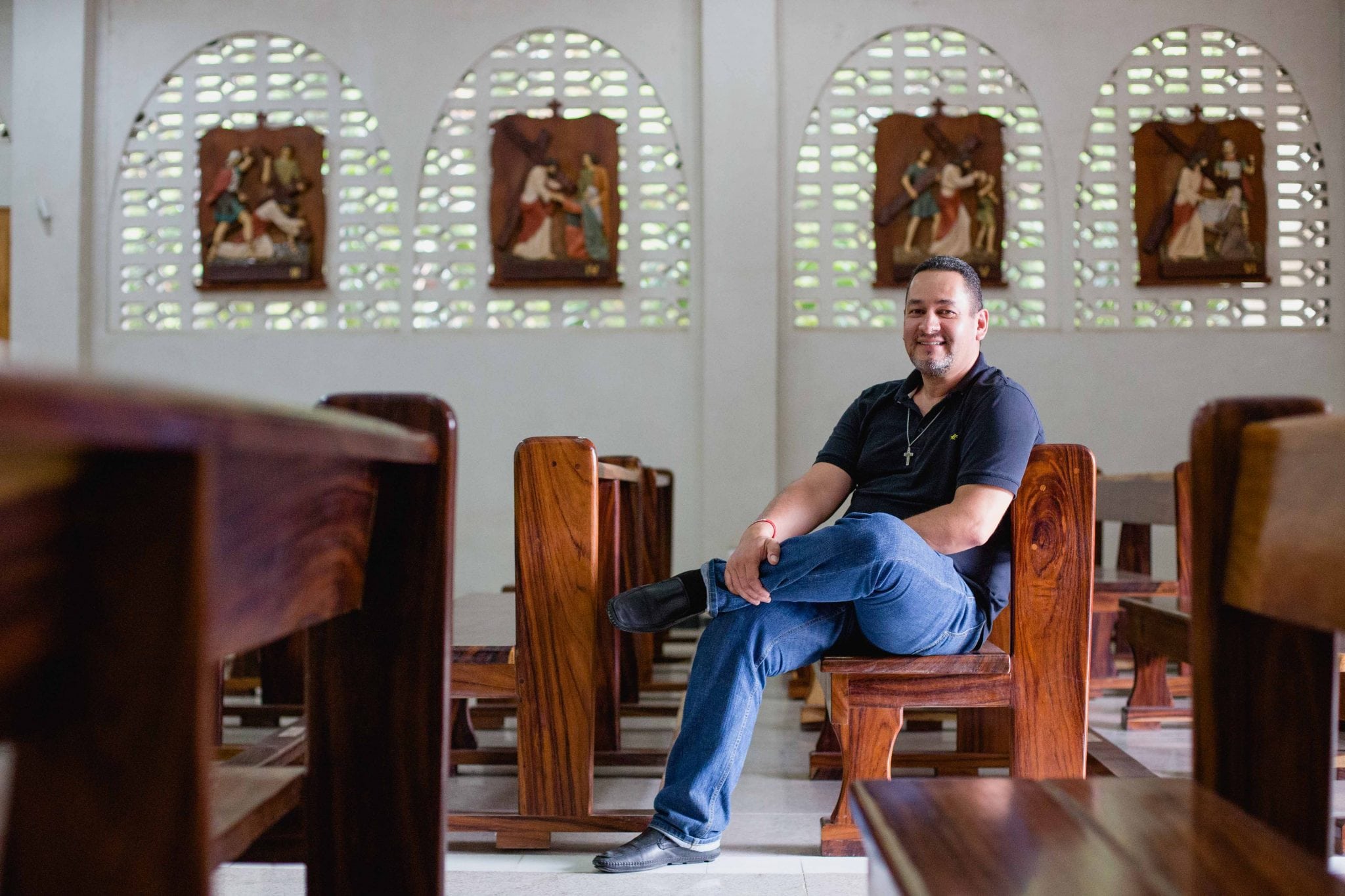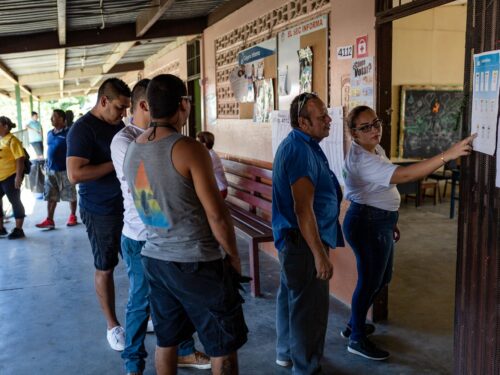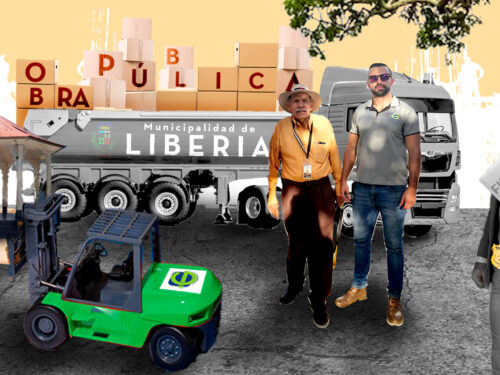
What does a female atheist who protests against misogyny and a priest from the Catholic Church have in common? If we are talking about Father José “Sejo” Díaz, a priest at the El Capulin de Liberia parish, then the answer is that they both believe in the separation of church and state and respect for diversity.
While the Episcopal Conference of Costa Rica labeled as immoral the Supreme Election Court’s ruling to allow for name changes according to gender identity, Father Sejo used his Facebook page to say that learning the stories of sexually diverse people has allowed him to “discover the validity of their battles.”
That motivated Nadiezda, the atheist, to tell him that people like him give her hope for a future full of respect.
Why does a priest have such a different ideas than the official opinions of the church? Why does he believe in breaking the historical and legal ties that exempt the church from paying taxes and receiving millions of colons from the state? He attributes his thoughts to the critical thinking he learned at the University of Costa Rica, where he studied psychology for seven years, as well as the values, such as the common good, that he was taught in seminary.
Eight months ago, Sejo arrived with an inclusive message for Guanacaste, the province that still speaks timidly about sexual diversity.
After a presidential campaign in which religion and the rights of same-sex couples were front and center, The Voice of Guanacaste sat down to speak with Father Sejo about his support for the LGBTI community and the changes that he foresees for the Catholic Church.
Following is an extract of the interview, slightly edited for space constraints and accuracy.
—Do you consider yourself to be a progressive priest?
There are conservative and liberal people in the church. If I had to identify with one sect, yes, it would be the sect more open to change.
—Has that been difficult?
Yes. During the 25 years of Jean Paul II and the seven years of Benedict XVI, conservatives had the benefit of popes that supported them and therefore felt more empowered. Today, Pope Francis is much more open to change and there are conservative sects that are struggling to understand that. For example, people go to the bishop and complain about things I say, like that women can be priests.
— Don’t you think it’s difficult for those who support a secular state to hear two very different discourses from the church?
Yes. But it’s difficult in all social systems, like in a family in which the father is more permissive and the mother is stricter, or vice-versa. The church still doesn’t know what it’s opinion is with regard to a lot of topics and it still doesn’t know what it is that God wants of some things.
— How are they going start figuring this out?
With time. The church has to evolve and God will guide us. How? I don’t have the faintest idea. What I know is that today, 2,000 years after the coming of Christ, we are much better. The church is still very green on the topic of sexual diversity. In 50 years it’s going to be very different than it is now on those topics.
—Is that what you expect?
Yes. For example, there are bishops in Germany that propose blessing ceremonies for diverse couples. We are moving from saying that they’re all going to the fifth circle of hell or making a commotion over removing ‘F’ and ‘M’ from an ID card to having bishops in the church that are proposing these types of rituals. It’s not a sacrament, but it is a ritual so that they can live together with God’s blessing.
— Could it one day become a sacrament for homosexual couples?
No. Well, I don’t know. I say no based on my limited history, culture and vision. But I don’t know where God will lead us.
—Why do you think it won’t happen?
I say no because part of the essential function of marriage is procreation and sexually diverse couples…(he pauses) But anyway, a sterile couple isn’t open to procreation and they can get married too…(he pauses again). I say no as a pure reaction because I’m from generation X. There are things on which I’m not a millennial nor of new generations, so they are still difficult for me.
—Do you believe that the church should get involved in country’s political issues?
Yes, of course. On a topic like abortion it has to get involved because, from our point of view, the moment that the egg and sperm join, there is a human life and the gospel instructs us to defend the weak.
So, a secular state wouldn’t look like heaven?
The state should not be denominational, but that doesn’t mean that the church is going to stay in its sacristy and that faith is something that belongs to the private domain. The church is going to get involved matters that deal with defending the poorest and those who suffer most.
— Have your positions influenced attendance at homily?
Yes. Here in Liberia, I don’t know because I’ve only been here a few months. Perhaps the most significant moment was during the free trade agreement because it’s when I noticed that people left mass (because of his position against the agreement).
—Do you face any challenges as a priest here?
Yes. I come to Guanacaste for three things: The parish, the one in Capulín, has had eight priests in 10 years, so I come to provide stability for the community for about five or 10 years. The second is that I have been working on a project for about a year to train deacons. And the third is a project in which the church accompanies universities.
—Accompanies them in what sense?
The idea isn’t for future professionals to spend their days praying, rather that when it comes to performing their jobs they think about the common good. For example, the economy is driven by a fierce capitalistic system. Is that the only economy possible in this world? No. Someone has to dare to do things more in accordance with the gospel.







Comments